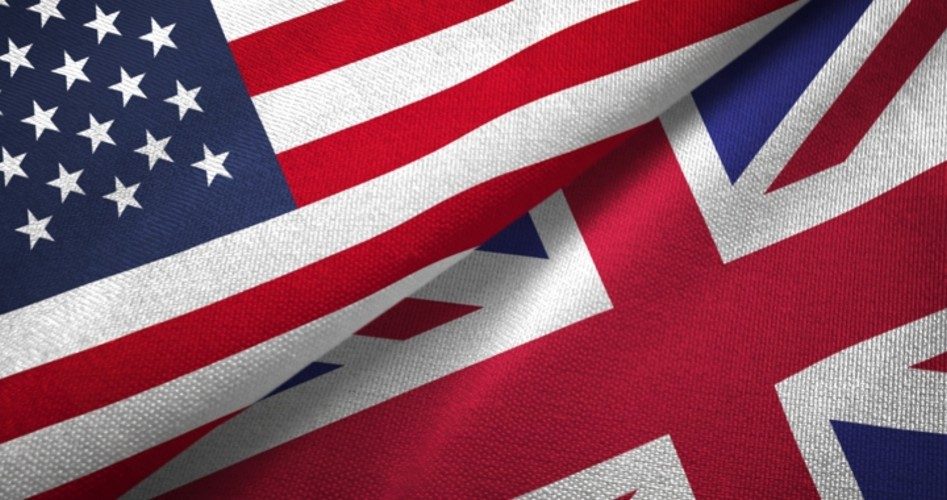
On August 5, Great Britain joined the United States in an “international maritime security mission” in the Persian Gulf to protect merchant vessels traveling through the Strait of Hormuz. The British decision was made following a July 19 incident, in which Iran’s Revolutionary Guard launched a gunboat and helicopter raid on the U.K.-registered Stena Impero. On that day, the Iranians also intercepted another British oil tanker, the Mesdar, and forced the ship toward Iranian territory in what appeared to be a coordinated attack.
Former British Foreign Secretary Jeremy Hunt (who resigned on July 24) told Parliament on July 22 that the U.K. planned to develop and deploy a Europe-led “maritime protection mission” to safeguard shipping in the strategically important Strait of Hormuz, through which about a fifth of the world’s oil passes.
The European-led naval mission that Britain was calling for several weeks ago has not come about, but Britain has decided to join what has been described as U.S.-led “international maritime security mission.”
Reuters reported that British officials stressed that there was no change to London’s policy on Iran, but joining the United States in the maritime mission is the most significant non-Brexit foreign policy move to take place under Prime Minister Boris Johnson’s new government.
“Our approach to Iran hasn’t changed,” British Foreign Secretary Dominic Raab said. “We remain committed to working with Iran and our international partners to de-escalate the situation and maintain the nuclear deal.”
Reuters cited an unnamed British source as stating that the focus of the new mission would be protecting the security of shipping, and Britain would not be joining the U.S. in imposing sanctions against Iran.
“It is vital to secure the freedom for all international shipping to navigate the Strait of Hormuz without delay, given the increased threat,” Reuters quoted British Defense Secretary Ben Wallace.
“The deployment of Royal Navy assets is a sign of our commitment to our UK flagged vessels and we look forward to working alongside the U.S. and others to find an international solution to the problems in the Strait of Hormuz,” Wallace said.
Commander Rebecca Rebarich, a Pentagon spokeswoman, said in a statement, “This is an international challenge and we look forward to the opportunity to work together with the Royal Navy and with additional partners and allies who share the common goal of ensuring the free flow of commerce.”
An August 4 report in the Military Times cited a statement from Marine General Joseph Dunford, the chairman of the U.S. Joint Chiefs of Staff, who said the Pentagon has developed a plan to protect shipping, and the U.S. military’s primary role would be to provide “maritime domain awareness” — defined as intelligence and surveillance information — to the ships of coalition partners that would conduct patrols in vulnerable waterways such as the Strait of Hormuz, and the Bab el Mandeb, a vulnerable strait between the Arabian Peninsula and the Horn of Africa where piracy has been a significant problem.
Image: Oleksii Liskonih via iStock / Getty Images Plus
Warren Mass has served The New American since its launch in 1985 in several capacities, including marketing, editing, and writing. Since retiring from the staff several years ago, he has been a regular contributor to the magazine. Warren writes from Texas and can be reached at [email protected].
Related articles:
U.K. Foreign Secretary Calls For “Protection Mission” to Guard Ships in Persian Gulf
Britain and Iran Confront Each Other in Persian Gulf
Russia Calls U.S. Move to Send More Troops to Middle East “Provocative”
Are Attacks on Oil Tankers at Hormuz Strait a Prelude to War?
Japanese Owner of Tanker Contradicts Claims That Mines or Torpedoes Damaged His Ship
Amid Threat of Physical War, Iran and Trump Engage in War of Words
Administration Hawks Led by John Bolton Create Anti-Iran Military Plan
Iranian Military Leader Says U.S. Deployment of Carrier Group Makes It “a Target”
President Trump Beats War Drums for Iran
Are All the World’s Problems Ours?
Mike Pompeo vs. Rand Paul on the President’s Presumed War Powers


